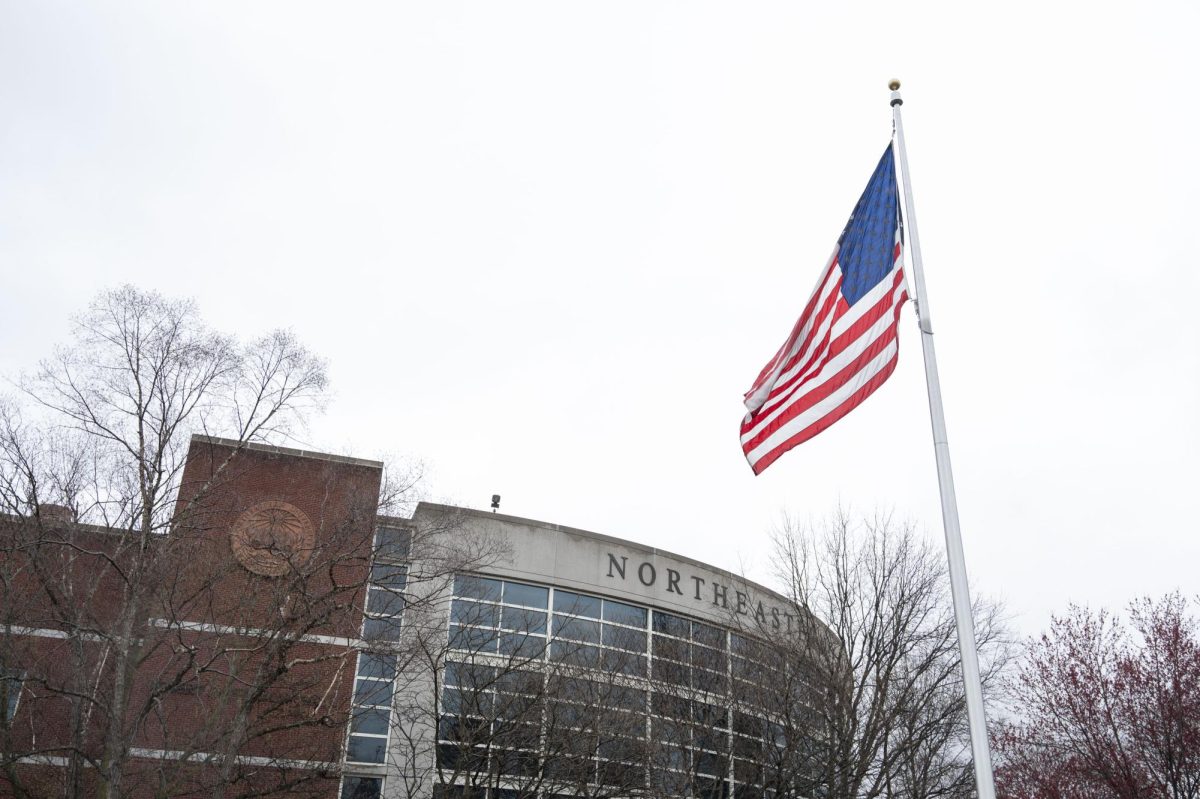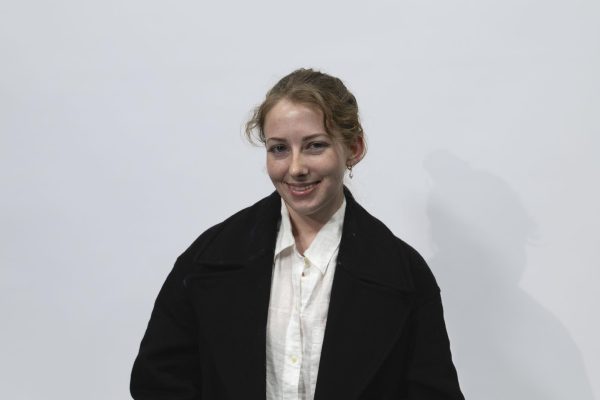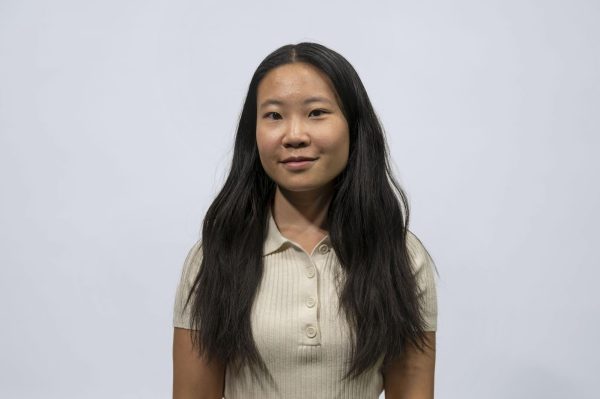Since President Donald Trump took office Jan. 20, he has followed through on his campaign promises to crack down on immigration, rapidly expanding detention efforts and visa revocations.
“This is the first arrest of many to come,” Trump wrote in a March 10 Truth Social post, referring to Columbia University graduate Mahmoud Khalil’s arrest. “We know there are more students at Columbia and other Universities across the country who have engaged in pro-terrorist, anti-Semitic, anti-American activity, and the Trump Administration will not tolerate it. Many are not students, they are paid agitators. We will find, apprehend, and deport these terrorist sympathizers from our country — never to return again.”
Northeastern confirmed in an email to The Huntington News April 7 that approximately 40 individuals affiliated with Northeastern — 18 students and 22 recent graduates — have had visas revoked across its 10 U.S. campuses. The federal government is revoking visas for international students “who have allegedly engaged in criminal behavior while in the U.S,” according to the university’s “Navigating a New Political Landscape” FAQ page. The page has served as the university’s central means of communication to the Northeastern community about policy changes since Trump took office.
As of April 10, Inside Higher Ed reported that more than 600 international students and recent graduates have had their visas revoked at universities across the country. Now, international community members are bracing for impact.
A Northeastern second-year master’s student from India, who was granted anonymity by The News due to fear of retaliation from the federal government, has a full-time job lined up for August. They are now uncertain whether they will be able to begin their role since visas seem to be “dependent on fate.”
“I’m not a citizen of this country. I’m just somebody who is here — let’s be honest — as a guest in this country,” the student said. “So I have to respect whoever comes in power, and I do that. It is your country. You guys will deal with it. I will not interfere in whatever your internal politics is. But the thing is that we have to look after ourselves in the end because nobody else is going to do that for us.”
Northeastern F-1 and J-1 visa holders, of which Northeastern has around 24,000, received an email April 6 from the Office of Global Services warning students of the mounting threat of visa revocations. The email advised students to carry proof of identity like a government-issued photo ID or their relevant F-1 or J-1 immigration papers and to monitor the university’s FAQ page for updates.
The school’s Global Safety Operations Center has established a 24/7 hotline to assist with immediate concerns regarding immigration enforcement on campus. In emails to international students and in the FAQ, the university has told students with questions about school-sponsored visas to contact the Office of the General Counsel, while students with visas independent of the university have been advised to contact an immigration attorney.
Paul Toland, owner and founder of the Boston-based immigration law firm Toland Law, LLC, said the State Department can revoke a visa for “any reason whatsoever.” U.S. Citizenship and Immigration Services, or USCIS, affirms that the revocation of immigrant visas is “discretionary.” Toland urged anyone whose visa was revoked to consider seeking asylum status, which allows those who might be persecuted in their home country to be legally protected in another sovereign nation under the Universal Declaration of Human Rights.
“You don’t have the right to a visa. It’s not like the right to freedom of speech, for example,” Toland said. “So the Department of State can always revoke a visa if they feel like it. And there’s nothing you can do to basically keep that visa.”
Northeastern’s FAQ page states that there is “no evidence” the visa revocations of the individuals affiliated with the university come as a result of political advocacy or speech. But the detentions of Khalil and Tufts University doctoral student Rümeysa Öztürk due to their histories of political activism offer an insight into the extent to which U.S. Immigration and Customs Enforcement, or ICE, is willing to continue detentions.
The ICE agents who detained Khalil were reportedly acting on orders to revoke his student visa and, after learning he was a permanent resident and green card holder, revoked his permanent residence status instead before taking him into custody, The Associated Press reported. Several days before Öztürk’s detention, the Department of Homeland Security revoked her visa without notifying her, her attorneys told The Boston Globe.
Schools across Greater Boston have now been impacted by visa revocations. The Harvard International Office confirmed that three students and two recent graduates have had their visas revoked in a statement on Sunday. Chancellor Marcelo Suárez-Orozco of University of Massachusetts, Boston reported that seven members of the community, including two current students, had their visas revoked. Emerson College President Jay Bernhardt confirmed that one student had their visa revoked, and Berklee College of Music said three students have been affected. Many more schools have reportedly been affected and numbers continue to rise across the country.
Northeastern acknowledged last month that the government’s surveillance of international students has recently extended into the digital space. In a March 25 email to the university community, Senior Vice Chancellor for Student Life Madeleine Estabrook warned students to “be aware that the U.S. Government is now publicly acknowledging that they are scanning social media when making decisions about issuing visas, approving admission to the U.S., and granting USCIS … benefits.” USCIS announced April 9 that the Department of Homeland Security will scour non-citizens’ social media accounts for any associations with “antisemitism,” leaving many students concerned of how broadly the agency defines the topic.
Giselle Rodriguez, a Boston-based immigration attorney, wrote in an email to The News that social media posts are now a source of heightened concern.
“Social media posts, in particular, have become an issue more than ever before, and students should be cautious about what they share,” Rodriguez wrote in the statement. “Discretion is a big thing in immigration, and even a post without any ill intention can be taken out of context.”
A third-year undergraduate student from New Zealand, who was granted anonymity by The News due to fear of retaliation from the federal government, said they have had concerns about federal backlash to international students interacting with anti-Trump political content on social media.
“I’m definitely a little bit nervous. I’ve been a bit more conscious in the last week or so about the things that I’m liking on social media, because I have heard of some people being detained and having their social media looked through for any reference … to the presidency or things against the U.S., which is worrying me,” the student said. “It’s just bewildering, really.”
The student said their family is concerned for their visa status amid the revocations and warned them to avoid anything that could cause them to be targeted.
“[My family told me] don’t go to protests, that we’ll just have to wait and see what happens when I try to get back into the country and also to watch my social media interactions,” the student said.
Some students are also concerned by the university’s lack of communication beyond its FAQ page. A Feb. 12 statement from President Joseph E. Aoun titled “Reaffirming our Mission Together” is the only statement the president has issued to the entire student body since Trump took office, which described the university’s commitment to principles of innovation in education and research.
Lina Petronino, a fifth-year journalism and psychology combined major and co-founder of the Northeastern democratic socialist publication Burning Rose, said the lack of information provided by the school is troubling.
“[Visa revocations] would’ve totally flown under my radar had it not been reported on by The Huntington News,” Petronino said. “That reaffirmed to me even further that [the university is] trying to bury this information, which is unsettling, to say the least.”
Petronino expressed concerns that the university’s use of an FAQ page is not as impactful as directly emailing the community when updates are made available.
“Northeastern prides itself on being an international university,” Petronino said. “Now more than ever, we need to be standing by the students because they are what makes Northeastern, Northeastern. … But the way that their actions are speaking right now is not aligning with [the goals of] an international university. I don’t see any form of solidarity or protection from administration.”
Petronino said increased transparency from the university regarding students’ visa statuses would help both to prevent panic and allow international students to prepare for the possibility of visa revocation. As of April 10, 28 campus organizations, as well as nine community organizations, signed an open letter condemning Northeastern’s communication strategies following the visa revocations.
“It’s a scary future, but it’s a very true reality for a lot of campuses right now,” Petronino said.
Deputy campus editor Aiden Stein and news staff Frances Klemm contributed reporting.














